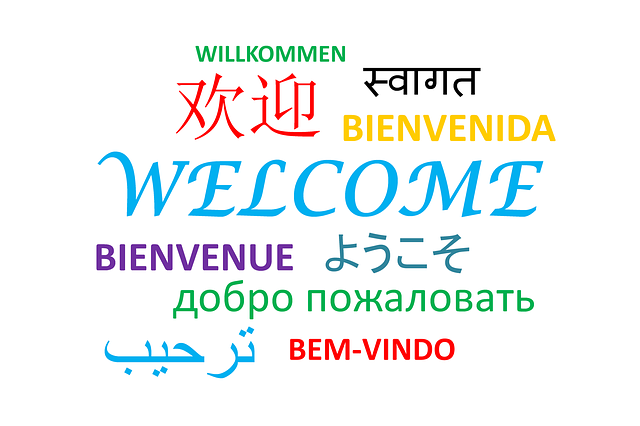Spanish
1. Word Overview
- Native phrase: ¿Sabes qué significa esto?
- English translation: Do you know what this means?
- Part of speech: Verb phrase + clause
- IPA pronunciation: /ˈsaβes ke siɣniˈfika ˈesto/
2. Example Sentence
Spanish: ¿Sabes qué significa esta palabra en el menú? English: “Do you know what this word in the menu means?” Tip: Significa is third-person singular of significar (“to mean”).
3. Mini Grammar/Culture Note
For polite or formal tone, use: ¿Sabe qué significa esto? (using usted). Spanish often places qué significa before the subject.
4. Daily Practice Challenge
Speaking prompt: Show a sign or label and ask: ¿Sabes qué significa esto?
Italian
1. Word Overview
- Native phrase: Sai cosa vuol dire questo?
- English translation: Do you know what this means?
- Part of speech: Verb phrase + clause
- IPA pronunciation: /sai ˈkɔːza ˈvwɔl ˈdire ˈkwesto/
2. Example Sentence
Italian: Scusa, sai cosa vuol dire questa espressione in italiano? English: “Excuse me, do you know what this expression means in Italian?” Tip: Vuol dire is a colloquial form of vuole dire (“it means”).
3. Mini Grammar/Culture Note
Formal: Sa cosa vuol dire questo? (using Lei). Italian uses cosa (what) + vuol dire to ask meaning.
4. Daily Practice Challenge
Writing prompt: Translate a phrase and ask: Sai cosa vuol dire in inglese?
Portuguese
1. Word Overview
- Native phrase: Você sabe o que isso significa?
- English translation: Do you know what this means?
- Part of speech: Verb phrase + clause
- IPA pronunciation: /voˈse ˈsavɪ u ki ˈisu siɡnifiˈka/
2. Example Sentence
Portuguese: Você sabe o que isso significa naquela placa? English: “Do you know what this means on that sign?” Tip: Isso means “this” (referring to the word or sign).
3. Mini Grammar/Culture Note
In Portugal, Sabe o que isto significa? is more formal. Isso often refers to something you pointed to.
4. Daily Practice Challenge
Listening activity: Ask your teacher: Você sabe o que isso significa? and listen carefully to the response.
German
1. Word Overview
- Native phrase: Weißt du, was das bedeutet?
- English translation: Do you know what this means?
- Part of speech: Verb phrase + clause
- IPA pronunciation: /vaɪ̯st du vas das bəˈdo͡ɪtət/
2. Example Sentence
German: Entschuldigung, weißt du, was das bedeutet? English: “Excuse me, do you know what this means?” Tip: Bedeutet (third-person singular of bedeuten) means “to mean.”
3. Mini Grammar/Culture Note
Formal: Wissen Sie, was das bedeutet? German often places the verb second and subordinate clause afterward.
4. Daily Practice Challenge
Speaking prompt: Show a symbol or emoji and ask: Weißt du, was das bedeutet?
French
1. Word Overview
- Native phrase: Sais-tu ce que cela signifie ?
- English translation: Do you know what this means?
- Part of speech: Verb phrase + clause
- IPA pronunciation: /sɛ ty sə kə səla siɲifi/
2. Example Sentence
French: Pardon, sais-tu ce que cela signifie sur la carte ? English: “Sorry, do you know what this means on the map?” Tip: Cela signifie is “this means”—cela is more formal than ça.
3. Mini Grammar/Culture Note
Informal: Tu sais ce que ça signifie ? Formal: Savez-vous ce que cela signifie ?
4. Daily Practice Challenge
Writing prompt: Write a sentence and ask: Sais-tu ce que cela signifie en anglais ?
Multilingual Bonus Comparison
| Language | Phrase | Pronunciation |
|---|---|---|
| Spanish | ¿Sabes qué significa esto? | /ˈsaβes ke siɣniˈfika ˈesto/ |
| Italian | Sai cosa vuol dire questo? | /sai ˈkɔːza ˈvwɔl ˈdire ˈkwesto/ |
| Portuguese | Você sabe o que isso significa? | /voˈse ˈsavɪ u ki ˈisu siɡnifiˈka/ |
| German | Weißt du, was das bedeutet? | /vaɪ̯st du vas das bəˈdo͡ɪtət/ |
| French | Sais-tu ce que cela signifie ? | /sɛ ty sə kə səla siɲifi/ |
Final Daily Practice Challenge
Choose two languages and:
- Speak: Show a word or sign and ask in the target phrase.
- Write: Translate a short sentence and ask: ¿Sabes qué significa…? / Sai cosa vuol dire… / Você sabe o que isso significa…? / Weißt du, was das bedeutet? / Sais-tu ce que cela signifie ?

